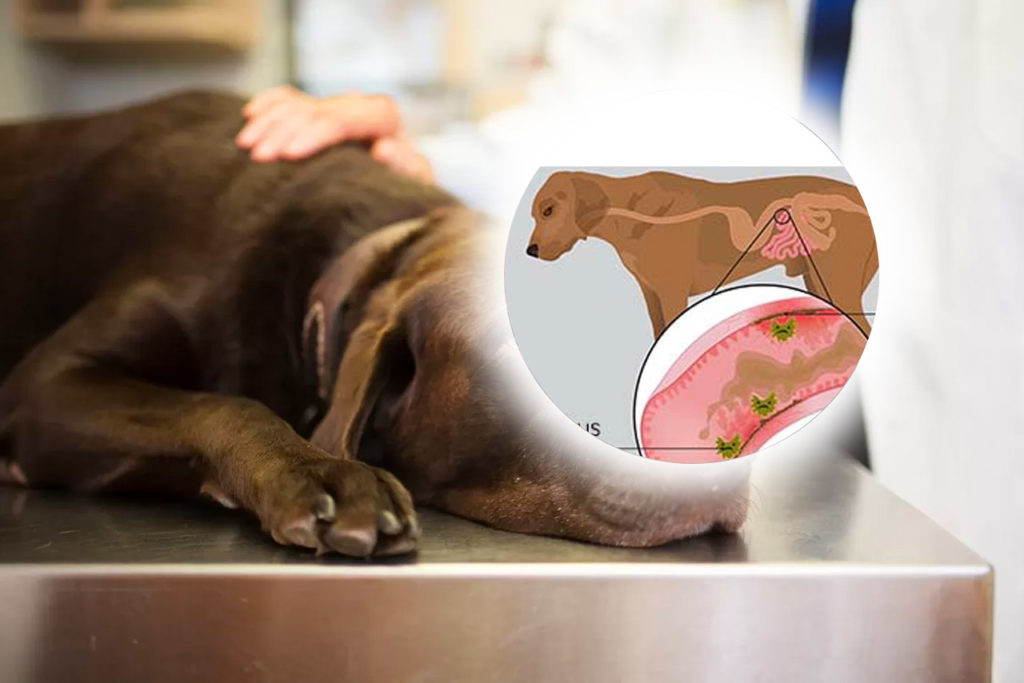Xanthan gum has become quite well-known for its ability to thicken and stabilize pet food. To enhance the texture and preserve the freshness of dog food, it is frequently added. But is it safe for dogs? Can dogs have xanthan gum?
Generally, xanthan gum dogs are considered safe for our furry friends. Regulatory authorities, such as the FDA, have approved its use in pet food, and there is no solid evidence suggesting it can harm dogs when used in the right amounts.
However, it’s important to know that some dogs may have sensitivities or allergies. While most dogs can handle xanthan gum without any issues, a few may experience digestive problems or allergic reactions. To ensure your dog stays healthy and happy, it’s essential to keep an eye on their well-being and consult a veterinarian if needed.
In this article, we will explore xanthan gum in dog food, providing you with helpful insights, tips, and expert advice. We will address frequent worries, talk about possible risks, and assist you in making decisions regarding the death of your dog.
Contents
What Is Xanthan Gum?
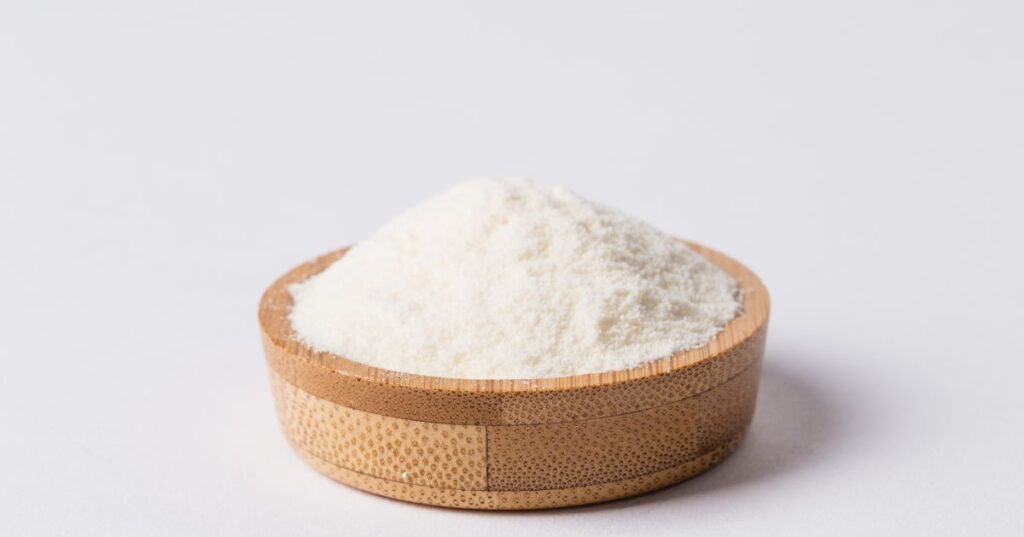
Xanthan gum is produced through the fermentation of sugars using a bacterium called Xanthomonas campestris. Essentially, it is a carbohydrate-based substance with exceptional properties, widely employed as a food additive.
Xanthan gum serves as a thickening agent, stabilizer, and emulsifier. These technical terms simply imply that it enhances the texture and consistency of food, preventing it from becoming a messy mixture. This results in an improved appearance that both you and your beloved pets can appreciate.
In general, xanthan gum is utilized in dog food to enhance texture, prevent ingredient separation, and improve palatability.
What Is Xanthan Gum Made Out Of?
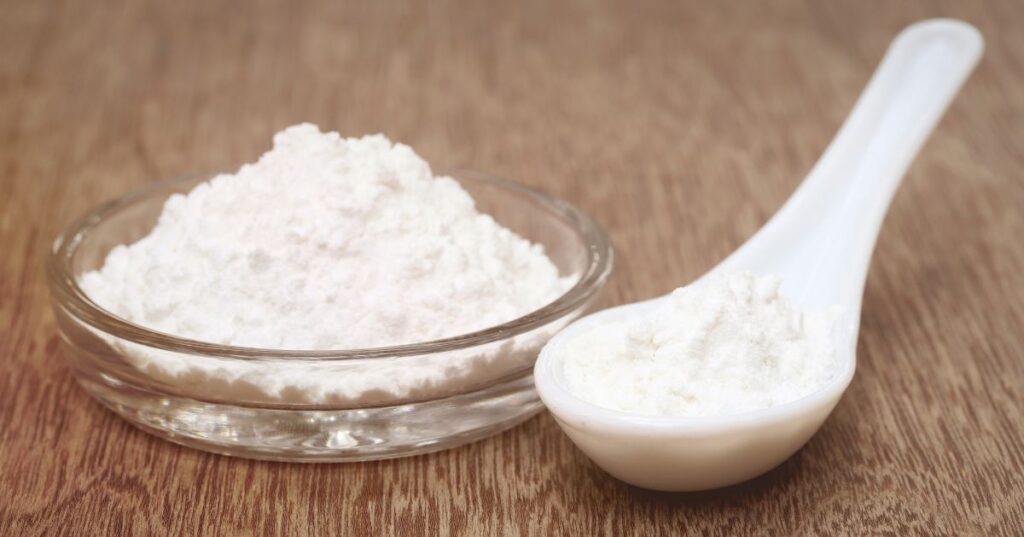
Xanthan gum is produced by fermenting certain bacteria, such as Xanthomonas campestris. These bacteria are grown under controlled conditions and fed on sugar or glucose-type carbohydrates. Using their specialized enzymes, the bacteria convert these carbohydrates into a type of polysaccharide known as xanthan gum.
Following the fermentation process, the mixture undergoes purification to eliminate impurities while preserving the integrity of the xanthan gum. The result is a powdery substance with excellent thickening and stabilizing properties, which explains its widespread use in the food industry.
One interesting aspect of xanthan gum is its behavior in water-based products. When mixed or stirred, it reduces in thickness, aiding the flow of liquid foods and imparting a pleasant texture to them.
Is Xanthan Gum Safe for Dogs?

Xanthan Gum dog food is a safe and tasty ingredient that can be added to your dog’s diet. Derived from fermented sugars, it is commonly used as a thickening and stabilizing agent in food products and has been approved as safe for canine consumption by regulatory bodies such as the FDA and EFSA. Research studies have shown that Xanthan Gum does not have any adverse effects on dogs when consumed in moderation.
It is non-toxic and non-allergenic, making it a good choice for dogs who have dietary sensitivities or allergies. However, it’s crucial to gradually add Xanthan Gum to your dog’s diet and observe how they react, just like with any other food additive. Too much Xanthan Gum can cause digestive discomfort, so moderation is key.
By making informed choices and providing a balanced diet, including Xanthan Gum as an occasional addition can enhance your dog’s culinary experience without compromising their health.
By the way, if you own a Pitbull dog or are just considering getting a Pitbull, here are some tips. Before you welcome this breed into your home, you should read some facts about this breed. Check out why does my Pitbull shed so much?
Potential Risks of Xanthan Gum for Dogs

It is important to be aware of the potential risks that xanthan gum can pose to your dog’s health. Let’s take a look at the potential risks and things to note in your dog’s food that can disrupt its health.
Digestive Distress
Dogs’ digestive systems may struggle to efficiently break down and absorb the complex structure of xanthan gum. This may result in stomach issues including bloating, gas, diarrhea, or constipation, which can be very uncomfortable for our furry friends.
Impaired Nutrient Absorption
The molecular structure of xanthan gum can interfere with the absorption of essential nutrients in a dog’s digestive tract. This means that even if your dog is eating a well-balanced diet, their body may struggle to extract all the necessary vitamins, minerals, and other vital elements they need to thrive.
Allergic Reactions
Allergic reactions are also something to watch out for. Just like humans, dogs can develop sensitivities or allergies to certain ingredients, including xanthan gum. These reactions can manifest as itchy skin, swelling, respiratory distress, or other signs of discomfort. If you notice any of these symptoms in your beloved friend after consuming a product containing xanthan gum, it’s essential to seek veterinary guidance.
Obstruction Hazards
In some cases, xanthan gum can pose a physical obstruction hazard for dogs. Due to its thickening properties, it can clump together or form sticky masses in the gastrointestinal tract. This can potentially lead to blockages, which can be serious and require immediate medical attention to ensure the safety and well-being of your dog.
To prioritize your dog’s health, take a closer look at the ingredients in their food and consider alternatives to products containing xanthan gum. By staying informed and mindful, you can keep your furry friend happy, healthy, and wagging its tail with joy.
Why Is Xanthan Gum Controversial?
Xanthan gum has stirred up controversy due to concerns surrounding its production, potential allergic reactions, effects on gut health, and its use in gluten-free products. This thickening and stabilizing agent, derived from the fermentation of bacteria, has raised questions about the presence of genetically modified organisms (GMOs) in the final product.
This GMO relationship is particularly alarming for people seeking organic and natural food sources. Additionally, some individuals have reported experiencing digestive issues, such as bloating and diarrhea, after consuming foods containing xanthan gum, although scientific evidence remains inconclusive.
Moreover, its impact on gut health is under scrutiny as it can alter the composition of the gut microbiota, potentially affecting digestion and overall well-being. Lastly, the use of xanthan gum in gluten-free products has led to debates over its impact on taste and texture, with some finding its presence undesirable. Ongoing research and discussions aim to provide further insights into the safety and effects of xanthan gum as a food additive.
What Is the Difference Between Xylitol and Xanthan?
Xylitol and xanthan are two distinct ingredients commonly found in food and personal care products, each possessing unique qualities that set them apart.
Xylitol
A natural sugar alcohol derived from plants, xylitol is well-known for having a sweet flavor similar to that of regular sugar. It is commonly used as a substitute for sugar in various products such as chewing gum, baked goods, and beverages. Moreover, it not only offers a sweet flavor but also contains fewer calories compared to sugar.
Xanthan
Xanthan is a polysaccharide produced through fermentation. It plays various roles in the realm of food and personal care. This versatile ingredient serves as both a stabilizer and a thickening agent, enhancing the texture and thickness of numerous products. Moreover, it possesses the unique ability to impart a gel-like consistency to liquids, making it highly valuable in the fields of food science and other related areas.
Comparison
While xylitol is great for adding sweetness, xanthan is all about transforming texture. Both substances contribute to creating wonderful products, but they do so in different ways. Whether you’re looking for a sugar alternative to satisfy your sweet tooth or seeking a way to enhance the texture of your cooking, understanding the difference between xylitol and xanthan will help you make informed choices and appreciate the variety of ingredients available to you.
Xanthan Gum Alternatives for Dogs
Xanthan gum has gained popularity in recent times. Due to its contentious reputation, it has however also generated some controversy. If you are not comfortable with xanthan, there are alternative options available that can meet your needs.
Psyllium Husk Powder
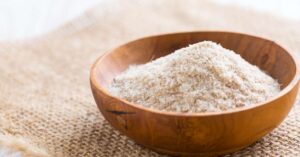
An excellent binding agent is psyllium husk powder, which is made from the seeds of the Plantago ovate plant. It not only enhances the consistency of your pup’s food but also contributes to promoting healthy digestion.
Chia Seeds
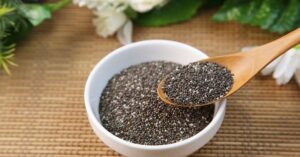
These tiny powerhouses are renowned for their incredible nutritional benefits. Chia seeds are packed with omega-3 fatty acids, fiber, and antioxidants, and they possess the unique ability to absorb liquid and form a gel-like substance.
Guar Gum
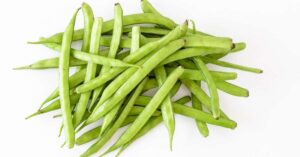
Another excellent alternative is guar gum, It is made from the guar plant’s seeds. This soluble fiber-rich natural thickening ingredient is great for stabilizing pet food and is also great for your dog’s digestive health.
Arrowroot Powder

If you’re looking for a gluten-free option, arrowroot powder is an excellent choice. It’s derived from the rhizomes of the Maranta arundinacea plant and offers exceptional thickening properties.
Locust Bean Gum

Locust bean gum is a fantastic alternative to xanthan gum. It is extracted from the seeds of the carob tree and serves as a natural gum. This versatile ingredient works wonders in terms of binding and thickening, which is why it is widely used in pet food.
Konjac Powder

The Konjac plant is renowned for having a high amount of soluble fiber. This organic thickening helps to support a healthy digestive system while enhancing the texture of your dog’s meals. Its low-calorie content also makes it a good choice for dogs that are trying to lose weight.
By exploring these unique and beneficial substitutes, you can ensure that your dog’s dietary needs are met while keeping its overall well-being in mind.
Conclusion
I’m sure you’ve heard of Xanthan gum dogs food. Xanthan gum is generally considered safe for dogs when used in moderation. Regulatory authorities have approved its use in pet food, and there is no solid evidence suggesting it can harm dogs when used in the right amounts. While most dogs can handle xanthan gum without any issues, it’s important to be aware that some dogs may have sensitivities or allergies. Digestive problems, impaired nutrient absorption, allergic reactions, and potential obstruction hazards are the risks associated with xanthan gum in dogs.
Despite the controversies surrounding xanthan gum, such as concerns about its production, potential allergic reactions, effects on gut health, and its use in gluten-free products, it remains a commonly used food additive. Ongoing research aims to provide further insights into its safety and effects.
For dog owners who prefer alternatives to xanthan gum, there are several options available. Psyllium husk powder, chia seeds, guar gum, arrowroot powder, locust bean gum, and konjac powder are among the alternatives that can enhance the texture and consistency of pet food while promoting healthy digestion.


